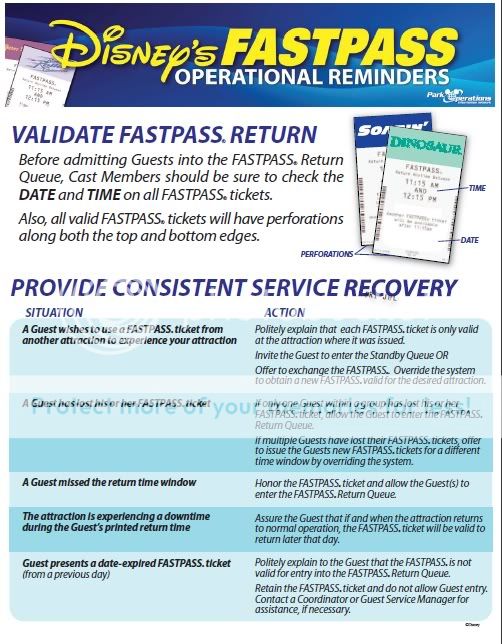vacationclub
Rochester, NY
- Joined
- Sep 21, 2011
- Messages
- 813

Oops, wrong post I was thinking of...it was on page 3.
That internal memo is not Disney's published policy....that's why it's called an internal memo. It was an operational reminder that gives instructions on how to handle certain anticipated issues with FP.
That was simply Disney's way of anticipating that some guests may miss their fastpass window (legitimately) and be upset about it because it messed up their day. Disney has always given the customer a lot of slack, so their internal memo was to remind CMs that they can allow people in if they "missed" (the exact word printed) the window. "Missed" implies that the guests simply couldn't get there in time, so Disney would still allow it. It doesn't imply that the guests purposely showed up hours after the window, but to the CM standing there looking at tickets, it's all the same.
Thus, it's not a policy as far as the guests are concerned....unless of course they all start comparing notes on Disboards, then realize what Disney is allowing, then exploit this for their own gain.
It was never a policy. It was a semi-known exploit that people learned about via means other than Disney itself. Enough people have apparently taken advantage of this exploit that Disney felt, for whatever reason, that it can not continue. So, they are now proceeding with much tougher enforcement of their public policy that's published on their web site, printed on the ticket, and posted on signs above rides.
Yea, it stinks if you were enjoying this exploit, but that's all it ever was.
 But it isn't there yet.
But it isn't there yet.


